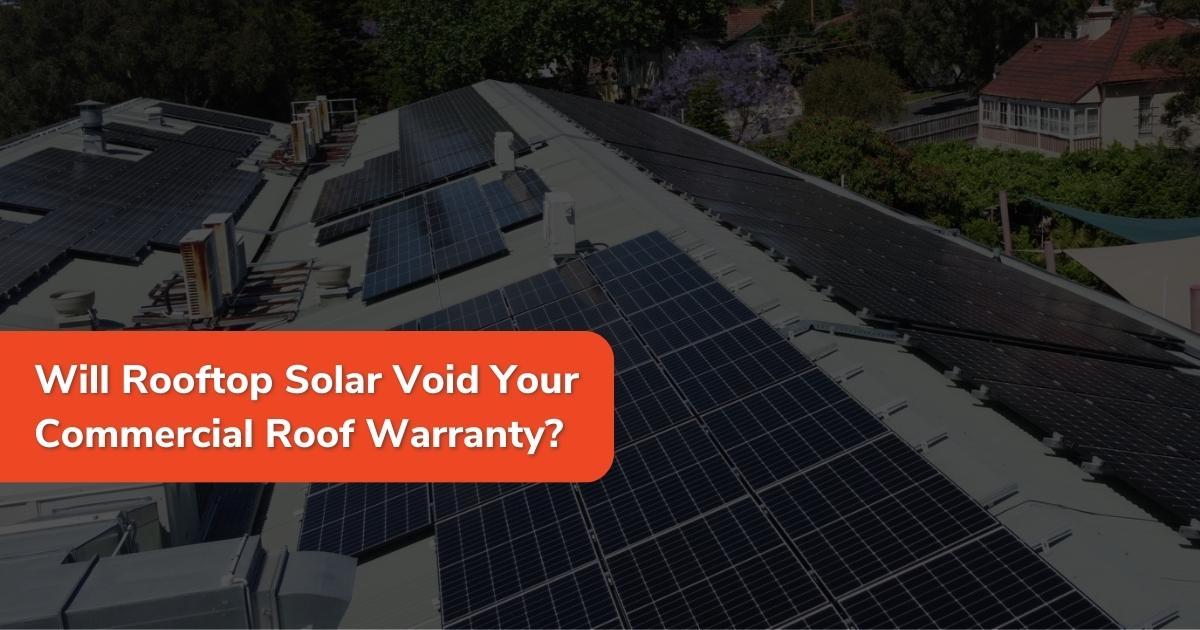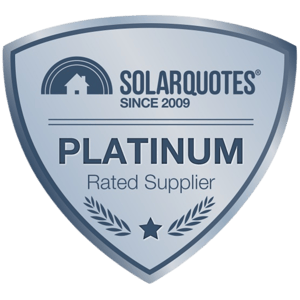Will Rooftop Solar Impact Your Commercial Building's Roof Warranty?

As the world continues to embrace renewable energy, more businesses are considering installing rooftop solar panels to reduce their energy costs and carbon footprint. However, one common concern that many business owners have is whether installing rooftop solar will void their building's roof warranty.
To answer this question, it's important to understand what a roof warranty is and how it typically works. A roof warranty is a type of warranty that covers a building's roof against defects in materials or workmanship. It can vary in length and coverage terms, but they generally provide protection against leaks, defects, and other issues that may arise with a building's roof.
There are different types of roof warranties, such as manufacturer warranties and contractor warranties, and they may have different coverage terms and limitations. For example, some roof warranties may only cover certain types of damage and may exclude damage caused by weather events or other external factors.

TYPES OF SOLAR PANEL ROOF INSTALLATIONS
When it comes to installing rooftop solar panels, the impact on a building's roof warranty will depend on the type of solar installation and the terms of the warranty. There are different types of rooftop solar installations, such as ballasted, penetrating, and adhesive-mounted systems, and each may have a different impact on a roof's integrity, insulation, and drainage. Let’s review them together below:
Ballasted Rooftop Solar
Ballasted rooftop solar systems are the most common type of installation and involve placing the solar panels on top of a weighted structure to hold them in place. These systems are generally considered to be the least invasive and do not penetrate the roof's surface, so they are unlikely to void a roof warranty. However, it's still important to ensure that the weight of the solar panels and ballast does not exceed the weight limit specified in the roof warranty.

Penetrating Rooftop Solar
Penetrating rooftop solar systems involve attaching the solar panels to the roof's surface using bolts or other fasteners that penetrate the roof's membrane. These systems are more invasive than ballasted systems and may potentially void a roof warranty if not installed correctly. It's important to consult with a roofing professional to ensure that the solar installation does not compromise the roof's integrity or create leaks. Despite these, most companies prefer penetrating rooftop solar systems since it is more affordable and quicker to install than others.

Adhesive-Mounted Rooftop Solar
Adhesive-mounted rooftop solar systems involve attaching the solar panels to the roof's surface using adhesives that bond the panels to the roof's membrane. These systems are also more invasive than ballasted systems and may potentially void a roof warranty if not installed correctly. It's important to ensure that the adhesive does not damage the roof's membrane and that the solar panels do not create a buildup of moisture or debris.

Solar Installation Warranties
When considering rooftop solar installations, it's also important to take into account the warranties provided by solar panel manufacturers and installers. These solar panel warranties may have different coverage terms and limitations than a building's roof warranty, and they may interact with the roof warranty in different ways.
For example, some solar panel warranties may cover damage to a roof caused by the solar installation, while others may exclude such damage. Additionally, some solar installers may offer installation warranties that cover any damage caused by the installation process, but these warranties may have limitations or exclusions.

Best Practices for Installing Commercial Rooftop Solar
- Check the terms of the building's roof warranty to see if installing solar panels will void the warranty.
- Consult with a roofing professional to ensure that the solar installation does not compromise the roof's integrity or create leaks.
- Choose a solar solution provider known for their professionalism and reliability, ensuring they take all the necessary precautions to protect your roof from any potential damage
- Regularly inspect and maintain the roof to prevent damage and ensure that the roof warranty remains valid.
- Check for signs of damage, such as cracks or leaks, and address them promptly.
- Ensure that drainage systems are working properly to prevent water buildup and damage.
- Remove any debris or moisture buildup that may occur around the solar panels.

In conclusion, installing rooftop solar panels can be a great way for businesses to reduce energy costs and their carbon footprint. By following best practices for installation and maintenance, businesses can enjoy the benefits of solar energy whilst still maintaining the protection provided by their roof warranty. With the peace of mind that comes from a valid roof warranty, expert solar installers and the benefits of solar power, businesses can take an important step toward a better planet and lower energy bills.
While you may not need to make immediate decisions right now, it's crucial to find a trusted energy provider who understands your unique circumstances. They will guide you through the process, consider your specific needs, and help you find the perfect solar solution. Talk to one of our energy experts and get the guidance you need for your commercial solar inquiries today.
%20(1).png?width=265&height=96&name=www.smartenergyanswers.com.auhs-fshubfsSmart%20Energy%20Answers%20Logo%20(HIRES)%20(1).png)

.png?width=514&height=121&name=Tesla%20Powerwall%203%20(new).png)








.webp?width=300&height=180&name=sigenergy-gold-installer-300x180%20(1).webp)